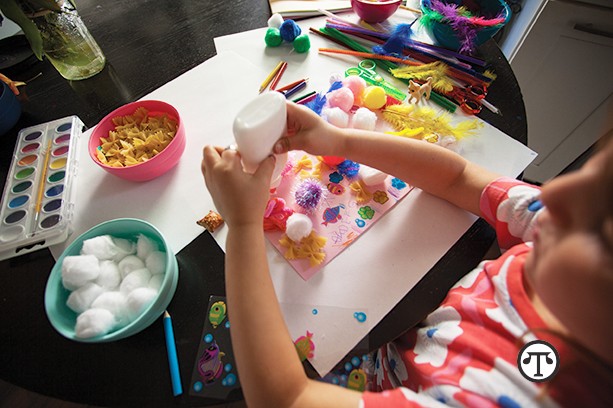To raise creative kids—let them play

(NAPS)—Fostering a child’s courage to express creativity is perhaps one of the most important goals that parents can set for themselves.
Understanding Creativity
Often, when people think of creativity, they think of the arts, but it starts with play early in life and leads to other things as children grow. It’s through play that children begin to develop their creative muscles, whether with blocks, dolls or action figures. Beyond play, kids may find creativity in the way they play sports, clean their room, prepare their food or do their schoolwork.
According to experts at The Genius of Play™, a national movement to raise awareness about play’s critical role in child development and encourage more play in children’s lives, creativity can help build confidence, flexibility, individuality and mental agility, and even contribute to better physical health.
Expert Advice
Dr. Erik Fisher, Ph.D. and The Genius of Play expert, believes the best way to foster children’s creativity is to encourage them to try things and not feel afraid to fail. Failure itself is an amazing learning experience as it helps children develop tenacity and perseverance, which are some of the most important skills they’ll need later in life. At the same time, parents should be aware of their own emotions, attitudes and beliefs and be willing to create with their child. Many times, parents want their kids to “fit in” and don’t realize they’re stifling creativity.
To help ensure that creativity is part of your child’s play routine, Dr. Fisher suggests:
• Don’t focus on just the arts. Play has a key role in helping develop children’s creative muscles. As children develop creativity in one area, it often extends to other areas.
• Help your kids stretch their creativity muscles and yours by experimenting with many different kinds of toys and playful activities. Trying new things lets kids discover what they like and explore their own talents.
• Observe and appreciate your children’s uniqueness and celebrate how they do things differently.
• There’s no better way to dry up creativity than with criticism. Try to find constructive ways to give feedback and seek ways to be positive.
• Help your child see failure through play as a learning experience, not a time to quit.
Learn More
You can get ideas on how to enhance creativity and other developmental benefits, expert advice and play resources at www.TheGeniusofPlay.org, @GeniusOf Play on Facebook and on Instagram.



